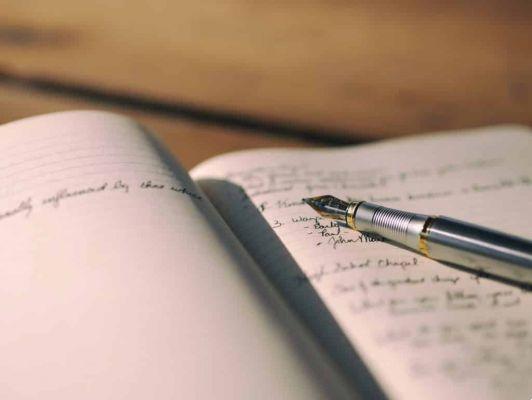Last year I released the book “A Namorada do Dom”, a biography in which I tell a little about the lessons I learned from my relationships and how, from lesson to lesson, I ended up in Switzerland.
Many people ask me what it's like to write a book. His story began, of course, with my birth, but writing started 10 years ago, when I was studying Anthroposophy.
One person who had only done a quarter of the course, who had had a very interesting life as a famous model, suggested that we exchange some stories about our life after she left for Australia.
During the course, I decided that one of my end-of-year assignments would be on Biographical Therapy, in which we analyze events in our lives based on seven years, or cycles of seven years. For this, I made it a bit like a timeline, in which I put each event and the feeling related to it in a very simple way, in one or two lines.

Those were the two bases I used to write it. When I hired a coach to help me organize ideas and put the book into an interesting format, my idea was just to write about relationships. And he said to me, "You're going to have to talk about your childhood for people to understand who this person is who has accepted all these relationships." It was there that he began the work of healing through writing.
I confess that it was not an easy process. I'd been doing so many therapies to put childhood behind me, and then I had to mess with it again.
In the first draft, the somewhat embarrassed reader told me, “It seems like you were so afraid of looking like a victim that I couldn't see what you felt at important events in your life, like when you were abandoned by your parents. ”
Gradually I also understood that part of my distance from my story had to do with the fact that I had made the timeline on the computer! When you write by hand, it's like you open yourself up to inspiration. You work on your emotions while you're writing, as well as your memory. It's a very different quality of soul than when you write on a typewriter.

Of course, it would be impossible to write the entire book by hand, but the timeline, the main points of the book and the feelings were written, since it is important that the author connects to that story in a non-mental way. What are the qualities of that character? What does she make you feel?
It was interesting to see that, of course, I am the common thread between all those unsatisfying relationships. What is my role, for example, in each story, in each breakup? Is the breakup a story of defeat, of overcoming, of self-love?
A very interesting thing that happened at the end was realizing that even if the next relationship wasn't ideal, there was always an improvement. It gave me incredible confidence in life.
Another part of the healing process is letting go of something you don't yet understand to be perfect. You will always find that there is something else to change in the book, but at a certain point it is necessary to let the work take place. As Julia Cameron says in the book "The Artist's Way", perfection only exists in the world of ideas, and ideas need to be born. If not for you, they will be born through someone else.
Publishing the book independently was an act of power. Telling people that the book has a price and that I charge for it is quite a learning experience. But the work of healing through writing never ends, and I can't wait to write the next one.
You may also like
- See the powers of writing and get started now!
- Write down what you think and check out great results
- How about reading a book a week? Start the habit of reading!
my gift to you
If you are not a writer, but would still like to benefit from writing, I suggest that, in addition to the timeline, you also try the free writing suggested by Cameron: in the morning, write whatever comes to your mind, non-stop, for three pages.
I leave here the indication of some more works by black writers for you to venture out:
- Becoming Black — Neusa Santos Souza
- Small Anti-Racist Handbook — Djamila Ribeiro
- When I Discovered Myself Black — Bianca Santana
- Let's All Be Feminists — Chimamanda Ngozi Adichie

























